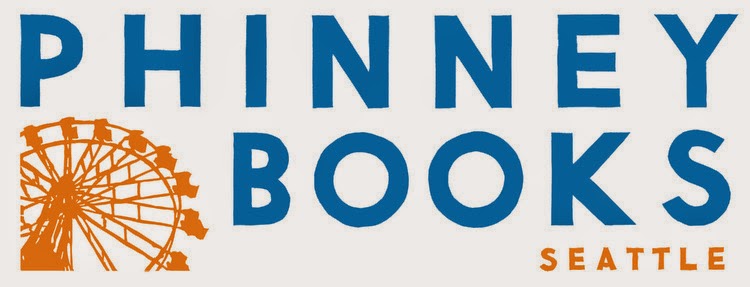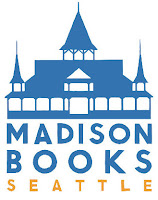 “New Voices” category at London’s Capital Crime Festival. He’s currently preparing to submit that manuscript to publishers.)
“New Voices” category at London’s Capital Crime Festival. He’s currently preparing to submit that manuscript to publishers.)The 2020 awards season will be remembered for being like no other that came before. This has been a year when winning crime-fictionists couldn’t even receive their prizes in person, but instead had to make do with hearing their names read out during online ceremonies.
Despite the problems presented by the COVID-19 pandemic, most—though not all—of the regular annual awards presentations for crime, mystery, and thriller novels went ahead in some fashion. A survey of 12 different groups or organizations known for offering yearly commendations in this genre shows a number of shared judgments on new releases, but also plenty of diversity in their other choices.
Between them, the Agatha Awards, the Anthonys, the Barrys, the Capital Crime/Amazon Publishing Readers’ Awards, the Crime Writers’ Association Daggers, the International Thriller Writers (ITW) Awards, the Los Angeles Times Book Prizes, the Harper Lee Prize for Legal Fiction, the Macavitys, the Shamus Awards, the Strand Magazine Critics Awards, and the Theakston Old Peculiar Crime Novel Awards assigned prizes to 31 different authors in 39 categories, with a total of 146 titles receiving nominations.
The big winner in 2020 turned out to be Northern Ireland-born, Australia-based thriller writer Adrian McKinty, whose ingeniously coercive tale about American child-snatchers, The Chain, picked up both the ITW Thriller Award for Best Hardcover Novel and the Theakston Old Peculier Crime Novel of the Year prize in July, then collected the Macavity Award for Best Mystery Novel and the Barry Award for Best Thriller in October.
McKinty is one of four male authors to make the top-10 list of most wins and nominations at award ceremonies this year.
Some of the best-known contributors to modern crime fiction found their latest books in contention among various prize juries over the last 12 months. They include David Baldacci (One Good Deed), Stephen King (If It Bleeds), Anthony Horowitz (The Sentence Is Death), and Ann Cleeves, whose first Detective Matthew Venn novel, The Long Call, captured the Agatha Award for Best Contemporary Novel in May.
 However, it was Korean-American author Steph Cha who kicked off the 2020 awards season back in mid-April, when her fourth novel, Your House Will Pay, won this year’s L.A. Times Book Prize in the Mystery/Thriller category. She followed that by scoring nominations at five other awards ceremonies.
However, it was Korean-American author Steph Cha who kicked off the 2020 awards season back in mid-April, when her fourth novel, Your House Will Pay, won this year’s L.A. Times Book Prize in the Mystery/Thriller category. She followed that by scoring nominations at five other awards ceremonies.Spare a thought, too, for Lauren Wilkinson, whose debut novel, the Cold War thriller American Spy, was selected by The New York Times as one of its “100 Notable Books of 2019” and went on to score five nominations without her receiving a single winner’s trophy in the post to place upon her mantelpiece. Do people still have mantelpieces?
Special mention deserves to be made of the impressively prolific Max Allan Collins and Denise Mina, who each managed to collect nominations for two separate titles (Collins for Killing Quarry and Girl Most Likely, Mina for The Less Dead and Conviction), yet were shut out of winners circles this year.
Finally, congratulations are in order for the Capital Crime Festival, held last month in London, which managed to put forth what may have been the most diverse lists of contenders. Their judges nominated 26 different print titles, the majority of them neglected by folks judging other crime-fiction competitions.
The following top-10 list of this year’s acclaimed crime, mystery, and thriller works was created for The Rap Sheet using a points system that credits wins, commendations, nominations, and the numbers of awards ceremonies at which each title was recognized.*
1. The Chain, by Adrian McKinty (Mulholland [U.S.], Orion [UK])
2. Miracle Creek, by Angie Kim (Sarah Crichton [U.S.],
Hodder & Stoughton [UK])
3. One Night Gone, by Tara Laskowski (Graydon House)
4. Death in the East, by Abir Mukherjee (Vintage [U.S.],
Harvill Secker [UK])
5. Your House Will Pay, by Steph Cha (Ecco [U.S.],
Faber and Faber [UK])
6. The Lost Man, by Jane Harper (Flatiron [U.S.],
Little, Brown [UK])
7. American Spy, by Lauren Wilkinson (Random House [U.S.] Dialogue [UK])
8. The Murder List, by Hank Phillippi Ryan (Forge)
9. November Road, by Lou Berney (Morrow [U.S.], Harper [UK])
10. The Sentence Is Death, by Anthony Horowitz (Harper Perennial [U.S.], Harper [UK])
Bubbling just under this list: My Lovely Wife, by Samantha Downing (Penguin [U.S], Michael Joseph [UK]); Lady in the Lake, by Laura Lippman (Morrow [U.S.], Faber and Faber [UK]); The Godmother, by Hannelore Cayre, (ECW [U.S.], Old Street [UK]); Charity’s Burden, by Edith Maxwell (Midnight Ink); Good Girl, Bad Girl, by Michael Robotham (Simon & Schuster [U.S.] Sphere [UK]); and The Secrets We Kept, by Lara Prescott (Vintage [U.S.], Cornerstone UK]).
* A note about list placements: The points system was devised to favor prize winners and books that received commendations over others that received multiple nominations but no awards. However, across-the-board recognition at a number of ceremonies was still reflected in the final calculations. Outright winners were allotted 25 points for each prize, commendations scored 23 points, and nominations (books that didn’t win) received 10 points apiece. Titles were given an additional two points for every ceremony where they were nominated.


















No comments:
Post a Comment